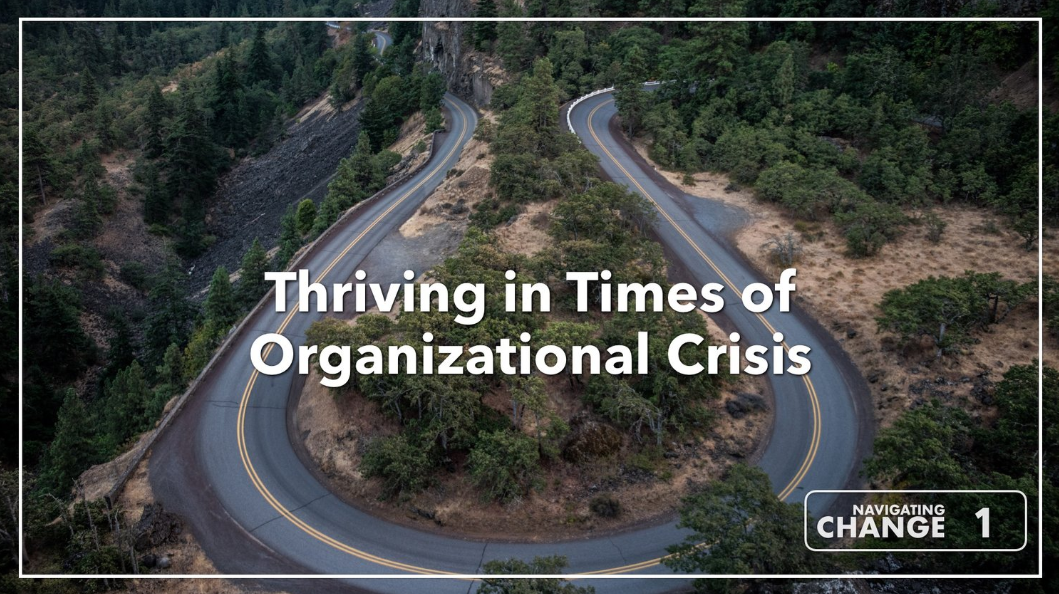
THE NAVIGATING CHANGE CATALOG IS HERE TO HELP YOU ENGAGE, PROVOKE, AND EDUCATE.
Navigating Change: The Podcast from Teibel Education

17: Building Your Vision 2020 Part 3 – with John Eldert and Howard Teibel
This week on the show, we bring you part three of our conversation with John Eldert, Vice President of Administration at Berklee College of Music as he joins Howard Teibel to discuss their work on adapting the business approach to strategic planning for higher education.

16: Building Your Vision 2020 Part 2 – with John Eldert and Howard Teibel
This week on the show, we bring you part two of our conversation with John Eldert, Vice President of Administration at Berklee College of Music as he joins Howard Teibel to discuss their work on adapting the business approach to strategic planning for higher education.

15: Building Your Vision 2020 Part 1 – with John Eldert and Howard Teibel
Academic planning often adopts the business approach to strategic planning. The results are predictable: clear, measurable outcomes; tight, pithy vision statement; focused strategy targeting a clear and "directable" organizational culture. But these assumptions don't fit the higher education planning environment, with many parallel lines of activity, complex vision, and an environment that is often far more self-directed. This week on the show, we bring you part one of our conversation with John Eldert, Vice President of Administration at Berklee College of Music as he joins Howard Teibel to discuss their work on adapting the business approach to strategic planning for higher education.

14: The Importance of Training as a Team
We underestimate what it means to collaborate. The result is often a catalog of missed opportunities for improving function across the organization, which comes at the expense of systems training and technology solutions for simple problems. This week, Howard Teibel joins Pete Wright with a few suggestions for team cross-training -- ensuring that teams are aligned across departments and functions, and that process, not just systems, are tested all along the line.

13: The 15-Minute Meeting
We’ve all been there -- the eternal ineffective meeting. The facilitator labors on and on, agenda lost long, long ago, with no end in sight. But it is possible to hold effective meetings; meetings with focus, attention, participation, and accountability -- and it all starts with a collective understanding of the rules of the field. In this episode, Howard Teibel and Pete Wright outline those rules and provide suggestions for all who are plagued with ineffective meeting-itis on how to spark the right team behaviors and get back on track.

12: How do you increase productivity without carrying a big stick?
It’s easy to say you want to cultivate an environment of collaboration and communication on a team. It’s another thing all together to actually achieve it. When you are faced with team behavior that’s in the dumps, how do you pull the right people together, inspire that spirit of innovation, and get people working together again without getting mired in politics and frustration?

11: We’re always selling
Walk into your next management meeting and tell your team that you think they need to learn to sell better, you're likely to feel a chill enter the room. Sales has a tough reputation inside organizations. And yet, so many core skills from the art of selling apply perfectly to the interactions we engage in day to day.

10: Strategies for Building an Effective Retreat
Holding a strong retreat takes planning and strategy to rally teams and build commitment. The best retreats offer a chance to capture institutional intelligence and align teams to strategic vision. The worst retreats are chaotic and unaligned, and can leave your team jaded and disorganized as a result.

9: Strategies for implementing The Balanced Scorecard – Special Guest Rebeka Mazzone
Implementing a Balanced Scorecard approach to quality and performance management can be tricky. Most teams are naturally cynical when it comes to new tools that measure their performance on the job. Clarity of mission and results across the organization can go a long way to soothing fears and inspiring confidence.

8: Getting Started with The Balanced Scorecard – Special Guest Rebeka Mazzone
Measuring performance is about more than simply measuring the work of your people. Modern managers are faced with aligning the strategic goals of the organization with daily activity, and mapping performance to a specific and measurable program for quality improvement. The Balanced Scorecard approach is just such a tool, one that can help organizations create real impact without additional process overhead.

7: No one will hand you a positive attitude
Keeping a positive attitude on the job is hard work. In the face of political struggles, management misunderstandings, job frustration is bound to kick in some time or another in your career. In the face of all of it, you know you have to put your best face forward and get the job done.

6: Process Mapping
One of the great challenges to efficiency across organizations lies in being able to clearly communicate how work gets done, and who's doing it. Before Visio, we did it through detailed policy manuals and word-of-mouth, but these hand-me-down techniques often missed key elements of process, focusing instead on constraints rather than delivering results.

5: The New Leader in Town: Create Impact and Deliver Results as a New Leader to your Team
When you inherit a new team, you inherit all the baggage that comes with it. So how do you drive toward synergy and overcome communication and process roadblocks?

4: Aligning Goals to Strategic Plans: Turning Direction into Work
Smart organizations run according to their strategic plan. But even the smartest managers can be challenged to take those plans and turn them into action. This is, in fact, the artistry that comes from being a good manager: being able to put into action that high-level strategic goals of the executive team. This week on the show, Howard Teibel and Pete Wright put perspective to turning strategy into action and give guidance on how you can better understand your primary charge as a leader.

3: Working in Virtual Teams: Motivating Teams and Learning Tolerance
One great truth about managing projects and complex teams is that even the savviest of managers stands the chance of missing key cues when their teams begin to suffer. This week on the show, Howard Teibel joins host Pete Wright to take on this issue and provide strategies for maintaining open communication and increasing the effectiveness of teams in the process.

2: Canary in the Coal Mine: How do you know when your teams aren’t functioning?
One great truth about managing projects and complex teams is that even the savviest of managers stands the chance of missing key cues when their teams begin to suffer. This week on the show, Howard Teibel joins host Pete Wright to take on this issue and provide strategies for maintaining open communication and increasing the effectiveness of teams in the process.

1: Thriving in times of organizational crisis
How do you help yourself — and others — in times of uncertainty? How do you stay motivated to deliver top results in your organization when those around you are struggling? In this episode of Navigating Change, Howard Teibel and host Pete Wright take on these difficult questions and offer guidance in navigating the political — and personal — challenges that come with job insecurity.







